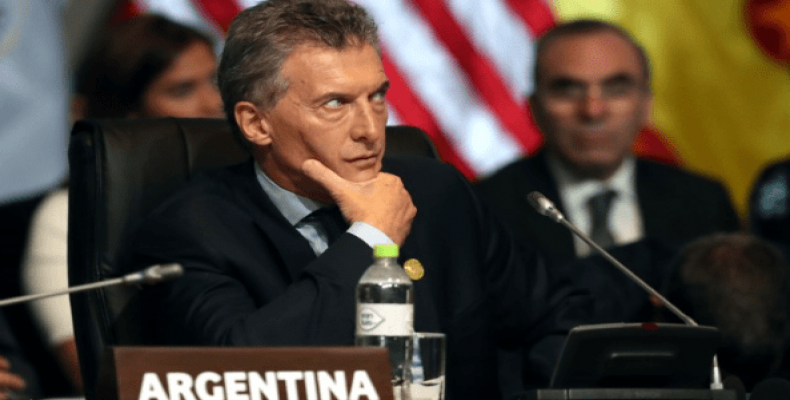Washington, May 21 (RHC)-- Officials from the International Monetary Fund (IMF) say they want to "quickly reach an accord" with the government of Argentina in light of the country’s economic crisis.
"IMF personnel are continuing to talk with Argentinean authorities in order to agree on a program supported by the fund," said the IMF's spokesperson Gerry Rice. "Our shared objective is to come to a quick agreement through these negotiations," Rice added.
Last week, after the Argentinean Central Bank tried to save the rapidly devaluing peso by hiking interest rates to 40 percent, President Mauricio Macri requested a Stand-By Arrangement (SBA) in the amount of $30 billion from the IMF. This type of loan offers large amounts of fast cash up front during times of "economic crisis."
Analysts say this type of loan will surely come with more IMF conditions in exchange for the monies compared to, say, the Fund's Flexible Credit Line, which has fewer strings attached in terms of how Argentina can spend the cash. However, the two parties have yet to hammer out the details of the loan specifications.
An agro-industrial worker told EFE that the current situation reminds him of what happened during the eighties -- "The dollar and inflation skyrocketed and he (the president) had to resign." The government became indebted to the IMF during the 1990s and by 2000 the country experienced its worst economic crisis in contemporary history, largely due to the fund’s strict austerity measures and heavy-handed macroeconomic policies.
Macri says that U.S. President Donald Trump gave his full support to the Argentinean loan. "Trump ratified his support" during a phone conversation Macri says he had with his counterpart.
Last week, U.S. Undersecretary of Treasury for International Relations, David Malpass, gave his "deep backing" to Macri’s decision to engage with the IMF and supports Argentina's "market-oriented reforms."
Since entering office two years ago Macri has slashed energy, transportation and gas subsidies, eliminated over one thousand state jobs, and cut taxes for mining and agro-industrial sectors all with the stated intent to control the nation’s inflation that hovers at 25 percent.
IMF wants to reach 'quick accord' With Argentina


